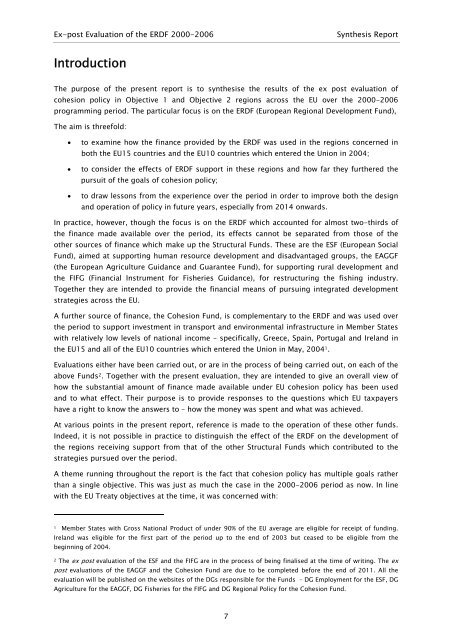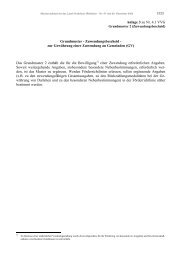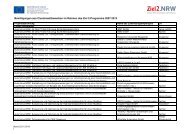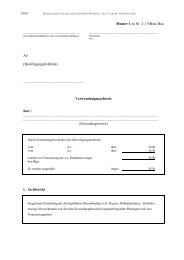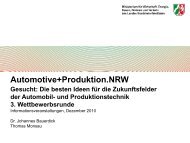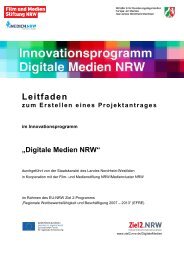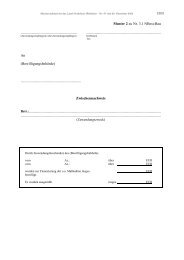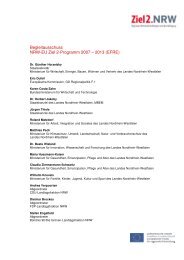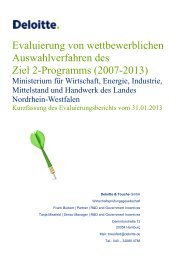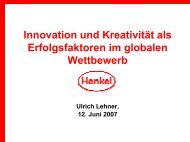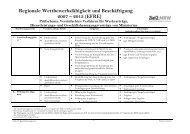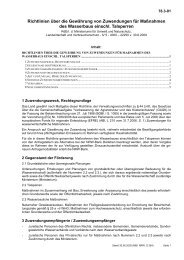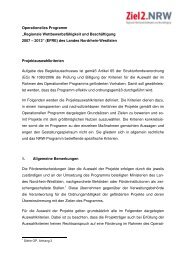Synthesis Report - European Commission - Europa
Synthesis Report - European Commission - Europa
Synthesis Report - European Commission - Europa
You also want an ePaper? Increase the reach of your titles
YUMPU automatically turns print PDFs into web optimized ePapers that Google loves.
Ex-post Evaluation of the ERDF 2000-2006<br />
<strong>Synthesis</strong> <strong>Report</strong><br />
1 Introduction<br />
The purpose of the present report is to synthesise the results of the ex post evaluation of<br />
cohesion policy in Objective 1 and Objective 2 regions across the EU over the 2000-2006<br />
programming period. The particular focus is on the ERDF (<strong>European</strong> Regional Development Fund),<br />
The aim is threefold:<br />
• to examine how the finance provided by the ERDF was used in the regions concerned in<br />
both the EU15 countries and the EU10 countries which entered the Union in 2004;<br />
• to consider the effects of ERDF support in these regions and how far they furthered the<br />
pursuit of the goals of cohesion policy;<br />
• to draw lessons from the experience over the period in order to improve both the design<br />
and operation of policy in future years, especially from 2014 onwards.<br />
In practice, however, though the focus is on the ERDF which accounted for almost two-thirds of<br />
the finance made available over the period, its effects cannot be separated from those of the<br />
other sources of finance which make up the Structural Funds. These are the ESF (<strong>European</strong> Social<br />
Fund), aimed at supporting human resource development and disadvantaged groups, the EAGGF<br />
(the <strong>European</strong> Agriculture Guidance and Guarantee Fund), for supporting rural development and<br />
the FIFG (Financial Instrument for Fisheries Guidance), for restructuring the fishing industry.<br />
Together they are intended to provide the financial means of pursuing integrated development<br />
strategies across the EU.<br />
A further source of finance, the Cohesion Fund, is complementary to the ERDF and was used over<br />
the period to support investment in transport and environmental infrastructure in Member States<br />
with relatively low levels of national income – specifically, Greece, Spain, Portugal and Ireland in<br />
the EU15 and all of the EU10 countries which entered the Union in May, 2004 1 .<br />
Evaluations either have been carried out, or are in the process of being carried out, on each of the<br />
above Funds 2 . Together with the present evaluation, they are intended to give an overall view of<br />
how the substantial amount of finance made available under EU cohesion policy has been used<br />
and to what effect. Their purpose is to provide responses to the questions which EU taxpayers<br />
have a right to know the answers to – how the money was spent and what was achieved.<br />
At various points in the present report, reference is made to the operation of these other funds.<br />
Indeed, it is not possible in practice to distinguish the effect of the ERDF on the development of<br />
the regions receiving support from that of the other Structural Funds which contributed to the<br />
strategies pursued over the period.<br />
A theme running throughout the report is the fact that cohesion policy has multiple goals rather<br />
than a single objective. This was just as much the case in the 2000-2006 period as now. In line<br />
with the EU Treaty objectives at the time, it was concerned with:<br />
1 Member States with Gross National Product of under 90% of the EU average are eligible for receipt of funding.<br />
Ireland was eligible for the first part of the period up to the end of 2003 but ceased to be eligible from the<br />
beginning of 2004.<br />
2 The ex post evaluation of the ESF and the FIFG are in the process of being finalised at the time of writing. The ex<br />
post evaluations of the EAGGF and the Cohesion Fund are due to be completed before the end of 2011. All the<br />
evaluation will be published on the websites of the DGs responsible for the Funds – DG Employment for the ESF, DG<br />
Agriculture for the EAGGF, DG Fisheries for the FIFG and DG Regional Policy for the Cohesion Fund.<br />
7


